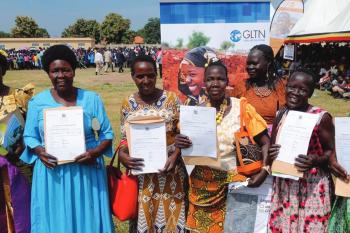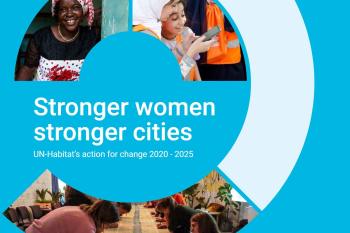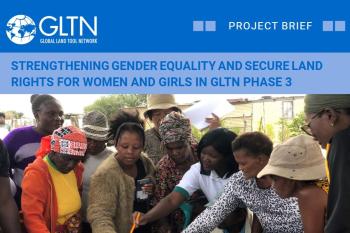
Read More
Gender Strategy for Land-at-Scale Uganda
Women’s Land Rights (WLRs) are fundamental human rights, foundational to gender equality and women’s dignity and instrumental in improving food security, effective climate action, poverty eradicati

Cities are a driving force of the 21st century. Through bringing large numbers of people into close proximity, they spark economic growth, foster innovation, and generate prosperity. But they face the pressing challenges of creating a livable environment for their residents, enabling economic activity that benefits all citizens, and fostering urban development that is environmentally sustainable, equitable, and resilient to disruptive forces. Particularly urgent is the need to finance this development: To achieve the Sustainable Development Goals, an estimated $3 trillion to $4 trillion is needed annually. In an increasingly urban world, cities play a pivotal role in closing this financial gap.
The publication includes three sections on: principles of municipal finance; designing financial products; and cross-cutting issues. The first section highlights: tools for raising local revenues; challenges local governments face such as insufficient and unreliable transfers from central government, poor tax collection and weak fiscal management; mechanisms on how to improve outdated governance systems, enhance revenues and build better local financial asset management systems; and fiscal decentralization as an important part of sustainable and autonomous municipal finance.

Women’s Land Rights (WLRs) are fundamental human rights, foundational to gender equality and women’s dignity and instrumental in improving food security, effective climate action, poverty eradicati

This publication presents a summary of UN-Habitat’s gender equality impact over the past five years, in line with the Beijing reporting cycle.

GLTN’s institutional commitment to gender equality and secure land rights for women and girls has been at the core of its work since inception in 2006.